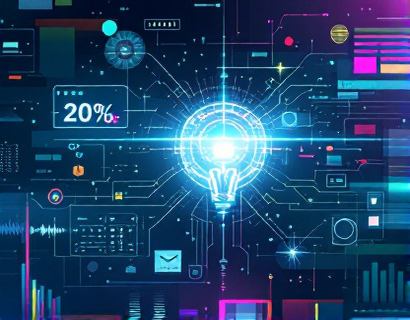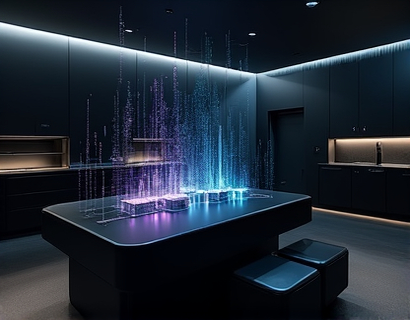Mastering Mindfulness: Exploring Advanced Software for Deep Relaxation and Stress Relief
In today's fast-paced world, finding moments of peace and tranquility can seem like an elusive goal. The constant barrage of notifications, deadlines, and daily responsibilities often leaves individuals feeling overwhelmed and stressed. However, with the advent of cutting-edge mindfulness software, achieving deep relaxation and stress relief is more accessible than ever. This article delves into the world of advanced meditation software, designed to guide users through effective relaxation techniques and mindfulness practices, fostering a balanced and peaceful mind.
The Importance of Mindfulness and Relaxation
Mindfulness, the practice of being fully present and engaged in the current moment, has gained significant attention for its numerous benefits. Research has shown that regular mindfulness practice can reduce stress, improve mental clarity, enhance emotional well-being, and even boost the immune system. In a world where stress is increasingly common, incorporating mindfulness into daily routines is crucial for maintaining mental health and overall well-being.
Relaxation, closely tied to mindfulness, is equally important. Deep relaxation techniques help lower cortisol levels, the stress hormone, and promote a state of calm. This not only alleviates immediate stress but also contributes to long-term health by reducing the risk of stress-related disorders. Mindfulness and relaxation software plays a pivotal role in making these practices accessible and effective for a wide range of individuals.
Advanced Meditation Software: Features and Benefits
Modern mindfulness software is designed to cater to users of all skill levels, from beginners to seasoned practitioners. These platforms offer a variety of features that enhance the meditation and relaxation experience, making it easier for individuals to integrate these practices into their daily lives.
One of the key features of advanced meditation software is the availability of immersive guided sessions. These sessions are led by experienced instructors who guide users through various techniques, from basic breathing exercises to more complex meditation practices. The guidance provided helps users focus their minds, relax their bodies, and deepen their mindfulness practice.
Calming soundscapes are another essential component of these platforms. Soft music, nature sounds, and white noise can create a serene environment that aids in relaxation. These auditory elements help mask distracting noises and create a peaceful atmosphere, making it easier for users to enter a state of deep relaxation.
Mindfulness tools are also integrated into these software solutions. These tools can include guided journaling, breathing exercises, and mindfulness prompts that encourage users to stay present and aware throughout the day. By incorporating these tools into their routine, users can cultivate a greater sense of mindfulness, leading to improved mental clarity and emotional balance.
User-Friendly Interface
The user-friendly interface of mindfulness software is designed to be intuitive and accessible. Whether you are a tech-savvy individual or someone who is new to using digital tools, these platforms are easy to navigate. The clean and simple design ensures that users can focus on their practice without being distracted by complicated menus or interfaces.
Most mindfulness apps offer a personalized experience, allowing users to customize their sessions based on their preferences and needs. Users can select the duration of their sessions, choose specific themes or topics, and even set reminders to ensure they make time for their mindfulness practice each day.
Scientific Backing and Effectiveness
The effectiveness of mindfulness and relaxation software is supported by a growing body of scientific research. Studies have shown that regular use of these tools can lead to significant improvements in mental health. For instance, a study published in the Journal of Clinical Psychology found that mindfulness meditation reduced symptoms of anxiety and depression in participants.
Another study in the Journal of Psychiatric Research demonstrated that mindfulness-based stress reduction (MBSR) programs, often delivered through digital platforms, resulted in lower stress levels and improved quality of life. These findings underscore the potential of mindfulness software as a valuable tool for enhancing mental well-being.
Practical Applications in Daily Life
Integrating mindfulness and relaxation practices into daily life can have profound effects. For individuals dealing with chronic stress, these tools can serve as a powerful coping mechanism. By taking just a few minutes each day to engage in guided meditation or mindfulness exercises, users can significantly reduce their stress levels and improve their overall mental health.
In the workplace, mindfulness software can be particularly beneficial. Employees who take regular breaks to practice mindfulness are often more focused, productive, and resilient in the face of challenges. Companies are increasingly recognizing the value of mindfulness programs and are starting to incorporate these tools into their wellness initiatives.
For students, mindfulness practices can enhance concentration and reduce exam anxiety. Schools and universities are beginning to introduce mindfulness programs to help students manage stress and improve their academic performance. Mindfulness software can be a convenient and accessible way for students to practice these techniques outside of formal sessions.
Choosing the Right Mindfulness Software
With the numerous options available, selecting the right mindfulness software can be overwhelming. Here are some key factors to consider when choosing a platform:
- Variety of Sessions: Look for software that offers a wide range of guided sessions, including different lengths and focuses, to suit various needs and preferences.
- User Reviews and Ratings: Check user reviews and ratings to gauge the effectiveness and user satisfaction of the platform.
- Customization Options: A platform that allows for customization, such as adjusting session length and selecting specific themes, can enhance the user experience.
- Additional Resources: Consider software that provides additional resources, such as articles, videos, and community support, to deepen your mindfulness practice.
- Accessibility: Ensure the software is accessible on multiple devices, including smartphones, tablets, and computers, to allow for flexibility in practice.
By considering these factors, individuals can find a mindfulness software that aligns with their needs and helps them achieve their relaxation and stress relief goals.
Conclusion
In an era where stress and mental fatigue are increasingly common, mindfulness and relaxation software offers a powerful solution. These advanced platforms provide accessible, effective, and user-friendly tools for integrating mindfulness into daily life. By leveraging immersive guided sessions, calming soundscapes, and mindfulness tools, individuals can experience deep relaxation and improved mental well-being. As research continues to support the benefits of mindfulness, embracing these technologies can lead to a more balanced, peaceful, and fulfilling life.










































